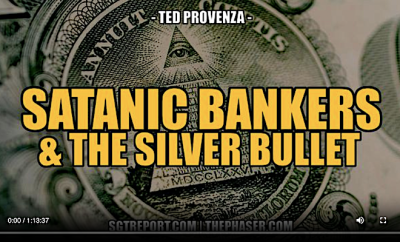Economy
Goldman Paid Bill Clinton $200K Before Lobbying Hillary On Export-Import Bank
by Tyler Durden, Zero Hedge.com:
As documented here on several occasions of late, there are new questions surrounding charitable contributions to the Clinton Foundation. Most notably, a Reuters investigation revealed that the Clinton family charities may have suffered what we called a “Geithner moment” when they failed to report tens of millions in contributions from foreign governments on tax documents. The foundation will now refile five years worth of returns and hasn’t ruled out the possibility that it may need to amend returns dating back some 15 years.
This prompted acting CEO Maura Pally to pen a lengthy blog post in which she explains the “mistakes” and attempts to reassure the public that the Clinton Foundation is taking special care to guard against “conflicts of interest” as Hillary begins her run for The White House. Pally also notes that similar measures were taken when Clinton was Secretary of State although, as we noted, the charity accepted donations from the likes of Kuwait, Qatar and Oman while she was the nation’s top diplomat.
Now there are new questions as IBTimes suggests there may be a connection between a $200,000 payment made to Bill Clinton by Goldman Sachs in 2011, and the bank’s efforts to lobby the State Department ahead of legislation involving the Export-Import Bank which was set to provide a loan that would end up financing the purchase of millions of dollars in aircraft from a company partially owned by Goldman. Here’s more:
Goldman Sachs paid former President Bill Clinton $200,000 to deliver a speech in the spring of 2011, several months before the investment banking giant began lobbying the State Department, then headed by Hillary Clinton, federal records reviewed by International Business Times show.
Goldman’s objective in lobbying the State Department could not be immediately discerned. The lobbying disclosure filings note only that Goldman sought to “monitor deficit reduction issues” — specifically, a bill known as the Budget Control Act — and the bank declined to answer questions about the precise nature of its interests…
In recent days, attention to overlapping interests that have donated to the Clinton family’s private interests while also allegedly seeking to influence State Department policy has reached a fever pitch amid leaks from a forthcoming book on the subject, “Clinton Cash,” by Peter Schweizer.
The involvement of Goldman Sachs seems certain to amplify that scrutiny. The bank brings a reputation as uniquely well-connected in Washington given that many of its former executives have landed in the uppermost ranks of the Treasury Department…
State Department records show that Bill Clinton’s $200,000 Goldman Sachs speech was delivered April 11, 2011, to “approximately 250 high level clients and investors” at a United Nations dining room in New York.
In federal disclosure documents, the Duberstein Group is listed as lobbying the Clinton State Department on behalf of Goldman Sachs between July and September 2011. Goldman Sachs paid the Duberstein Group $100,000 during that time.
Those records show that the firm was specifically lobbying the department on “proposed legislation” linked to a series of budget bills. One bill continued congressional authorization for the Export-Import Bank, a government-backed lender whose financing was critical for the prospects of a company in which Goldman owned a stake.
The original budget bill was introduced in July and did not include an extension of the Export-Import Bank, but the bank reauthorization was added in late September, during the same period Goldman was lobbying the State Department on the bill.
In August 2011, the bank authorized a $75 million loan enabling a Chinese firm to purchase aircraft from Beechcraft (known before emerging from bankruptcy in February 2013 as Hawker Beechcraft), a company that was part-owned by Goldman. Beechcraft had lobbied the Clinton State Department on issues relating to foreign military sales in 2009 and 2010, according to its lobbying disclosures.
Readers can draw their own conclusions here, and we don’t think it’s any surprise that Wall Street lobbyists wield considerable power in Washington, but the takeaway is that, as we’ve said on a number of occasions recently, you can expect to learn much, much more in the coming months about the degree to which the Clinton Foundation — and any other avenue through which foreign governments, Vampire squids, and a whole host of other state and non-state actors can channel money — is used as a means of buying influence with America’s maybe next President.
And because we can’t help ourselves, here is how we imagine Hillary would respond to the above:












